Barry Norman (1933-2017)
I first met Barry
Norman ten years ago through his wife Diana, whose historical mysteries written
under the name Ariana Franklin, I had enjoyed immensely and reviewed
enthusiastically.
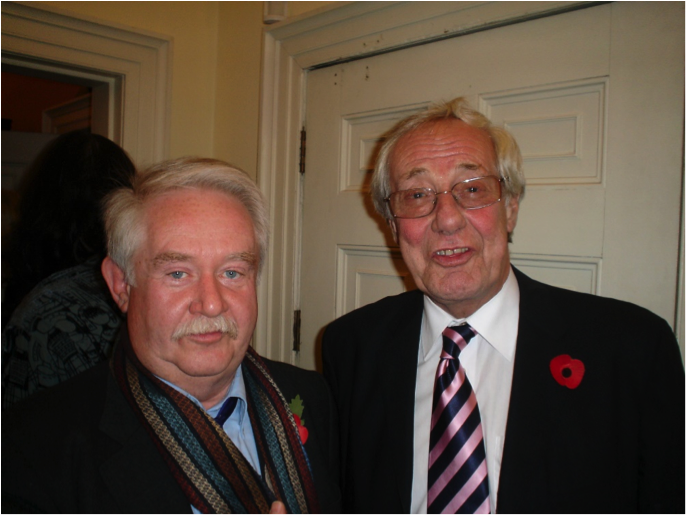
It was, ironically, as
Diana/Ariana proudly proclaimed, the year Barry would move from ‘the nation’s
favourite film critic’ to being ‘the pickled onion oligarch’. For years Barry
had followed an old family recipe for pickling onions (and shallots) and a
family friend, having tried them (and they were very good indeed) persuaded him
to go into commercial production.
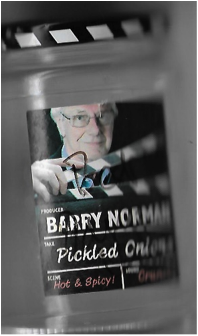
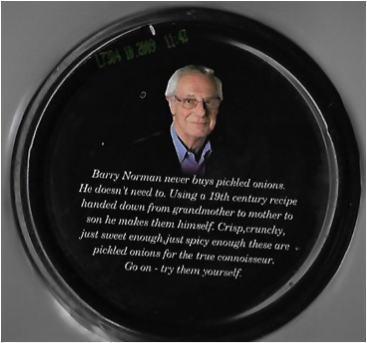
Very soon Barry Norman’s
Pickled Onions graced the shelves of supermarkets nationwide and Barry didn’t
turn a hair when my wife asked him to autograph a jar, which we still have
though the contents have long since been consumed.
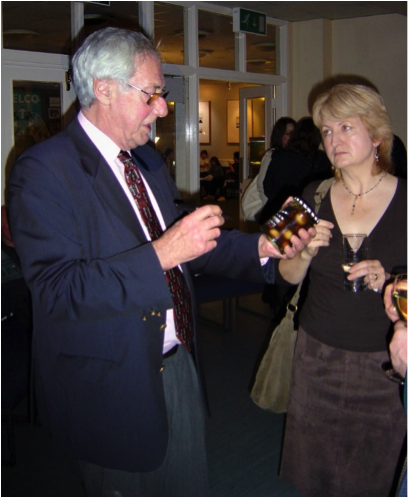
Barry would often
accompany Diana to crime writing events and seemed to particularly enjoy
joining the ‘after party’ of the annual Bodies in the Bookshop promotion at
Heffers in Cambridge, which took place in a local Chinese restaurant.
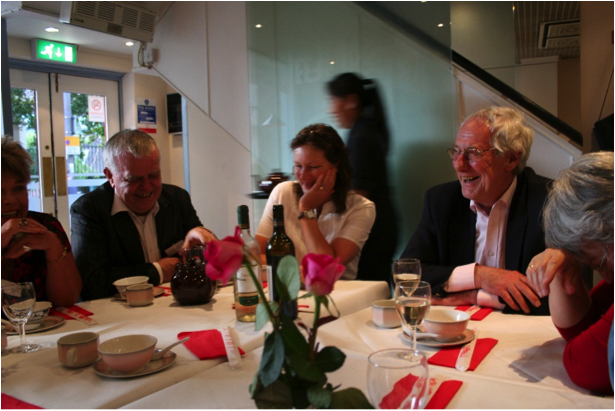
(with
Paul and Carla Doherty and Deryn Lake)
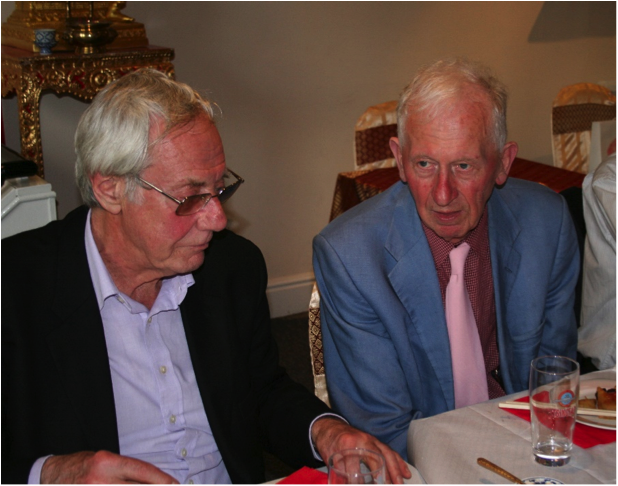
(with
television critic – and film buff – Philip Purser)
Most famous for his
long-running television film review shows (Film
72 to Film 98) and dozens of
books about films and Hollywood, he also wrote half a dozen novels, including
the comic romp Sticky Wicket (1984)
about his other passion – cricket.
What is less well
known is that in the 1960s, in the midst of the boom in British thrillers, he
was one of many a Fleet Street journalist who tried their hand at inventing the
next James Bond. His initial forays into spy thrillerdom with agent Paul Baker
resulted in two books: The Matter of Mandrake (1967) and The
Hounds of Sparta (1968).
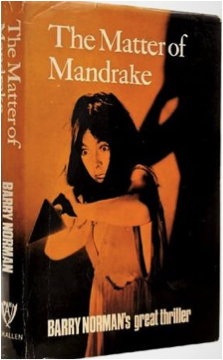
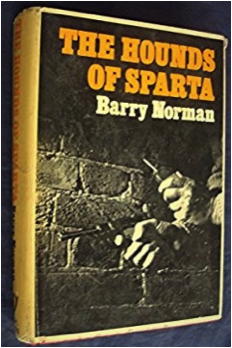
Cinema proved more
tempting than a career as a thriller-writer though, which is understandable
given that Barry was the son of director Leslie Norman, famed for the original
wartime epic Dunkirk (1958) and television series such as The Saint and The Persuaders.
Barry did maintain an
interest in thriller writers and screen adaptations of their work and proved a
fund of stories about meeting Len Deighton, Georges Simenon and Alistair
MacLean, one of the few journalists the reclusive Scot seemed happy to talk to –
and drink with.
Since the death of
Diana in 2011 I met Barry only infrequently, usually at the annual Felix/Dick
Francis book launch, but I remembered many of the stories he had told about
writers and films and more than one has found its way into my book Kiss Kiss Bang Bang. Sadly, he was
unable to come to the launch and it will be an eternal regret that I was not
able to give him a copy for he was, as we used to say, a ‘top bloke’- always
charming company and with a sharp sense of humour to boot.
Mike Ripley.